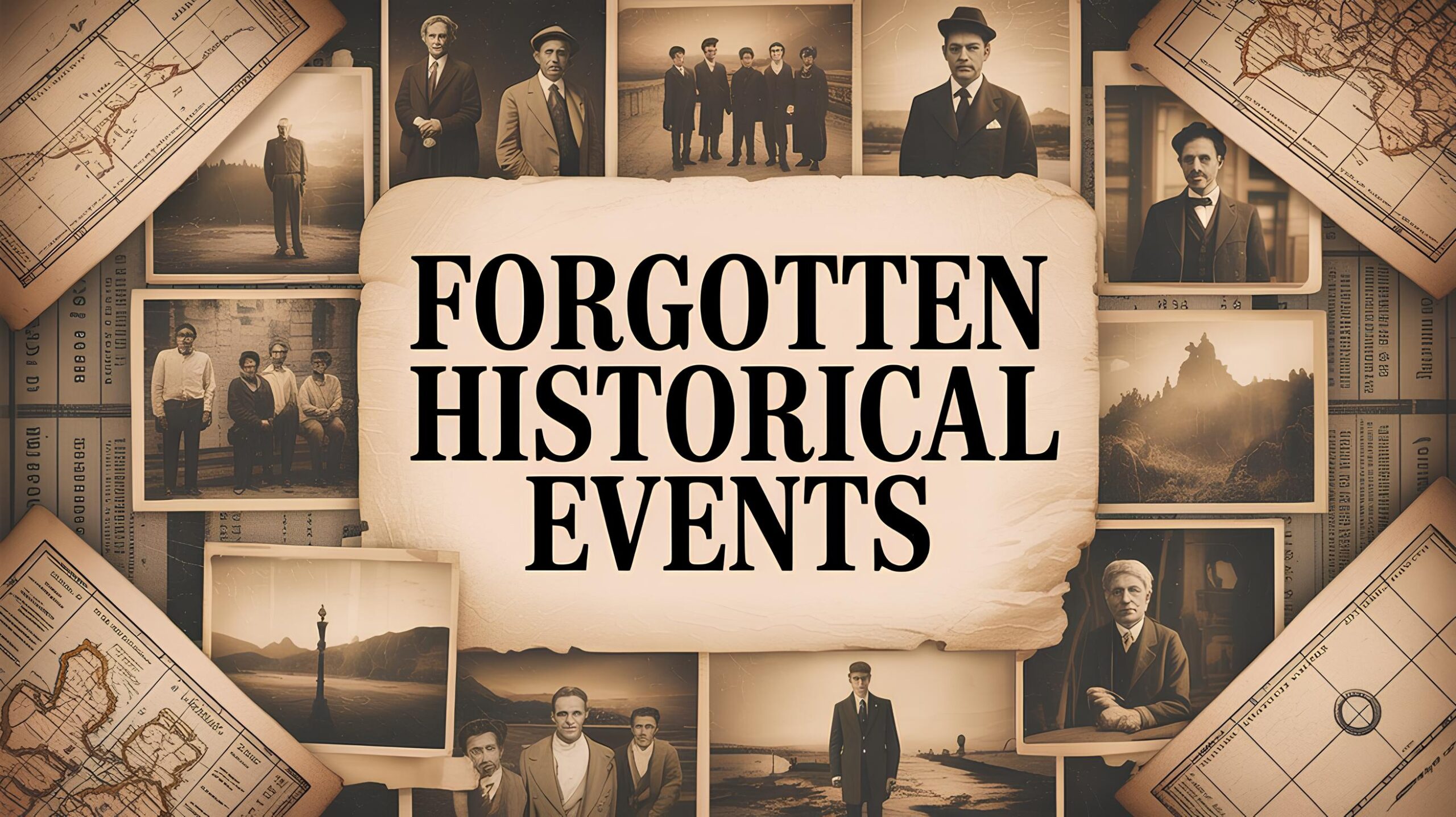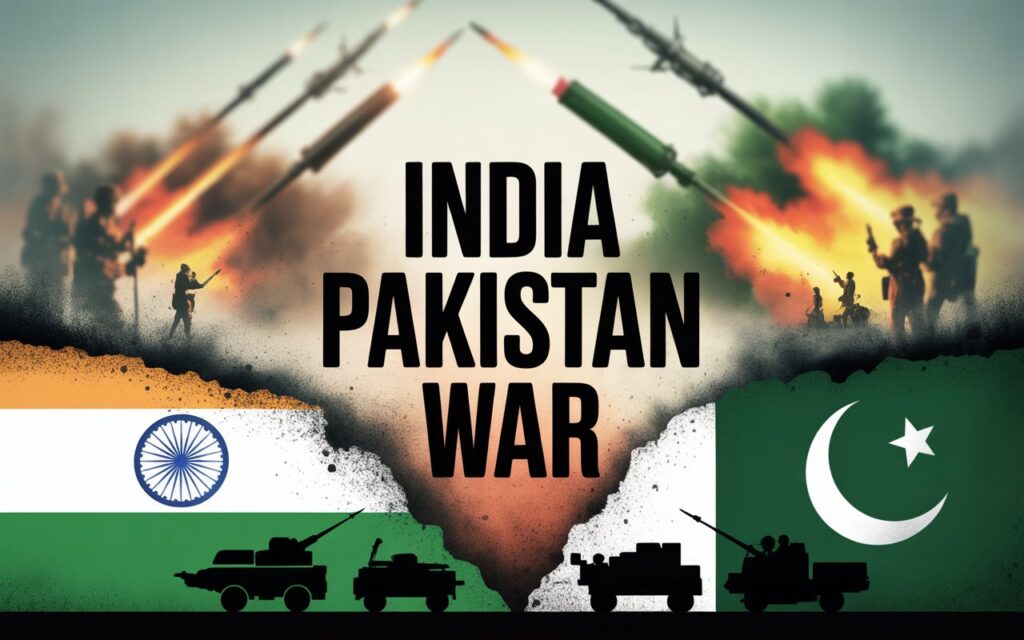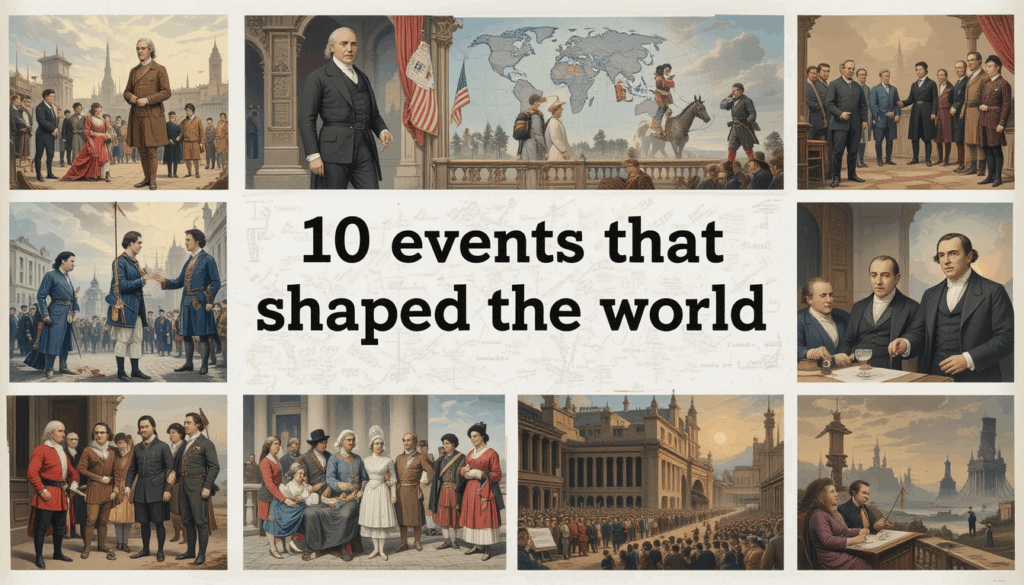Uncovering Overlooked Moments That Shaped History
History remembers the grand battles and powerful leaders, but countless pivotal moments have been lost to time. These Forgotten Historical Events—from silent revolutions to overlooked tragedies—offer rich insights into how the world really evolved. This article uncovers key Forgotten Historical Events in America, around the globe, and highlights some of the most forgotten and interesting moments in history.
Forgotten Historical Events in History
The Armenian Genocide (1915)
Over 1.5 million Armenians were systematically killed by the Ottoman Empire during World War I. Despite overwhelming evidence, many governments have hesitated to officially recognize this atrocity. Source
The Great Smog of London (1952)
A toxic mix of air pollution and cold weather caused respiratory issues that led to the deaths of an estimated 12,000 people in London. The smog eventually spurred environmental legislation. Source
Forgotten Historical Events in America
The Wilmington Coup (1898)
White supremacists in Wilmington, North Carolina, overthrew a legally elected biracial government in a violent insurrection. This is considered the only successful coup in U.S. history. Source
The Ludlow Massacre (1914)
Striking miners and their families were attacked by the Colorado National Guard and private security, killing 25 people. This tragedy brought national attention to labor rights. Source
Japanese Balloon Bombs (WWII)
During WWII, Japan launched balloon bombs across the Pacific. One of them killed six Americans in Oregon, marking the only mainland U.S. casualties from enemy action. Source
Forgotten Historical Events in the World
Batang Kali Massacre (1948)
British troops executed 24 unarmed villagers in Malaysia. The UK government denied involvement for decades, reflecting the dark side of colonial rule. Source
Rwandan Genocide (1994)
Nearly 800,000 Tutsis and moderate Hutus were killed in a mass genocide while much of the world remained inactive. This remains a harsh lesson in international inaction. Source
Most Forgotten and Interesting Historical Events
- Year Without a Summer (1816): Caused by the eruption of Mount Tambora, global temperatures dropped, causing famine and migration. Source
- The Dancing Plague (1518): In Strasbourg, people danced uncontrollably for days, possibly due to mass hysteria or poisoned grain. Source
- Great Emu War (1932): Australia lost a campaign to control emus with soldiers and machine guns. An odd but real environmental conflict.
Forgotten Historical Events in the American Timeline
- 1830s: Trail of Tears – Forced Native American relocation
- 1898: Wilmington Coup – Political overthrow
- 1914: Ludlow Massacre – Labor strike violence
- 1921: Tulsa Race Massacre – Racially motivated destruction
These events shaped the nation but rarely make it into school textbooks.
FAQ
- What is the most forgotten event in history?
The Wilmington Coup of 1898 is a top contender due to its erasure from mainstream education.
- What is the most interesting historical event?
The Dancing Plague of 1518 stands out for its mystery and psychological intrigue.
- What happened on 10/5 in history?
On October 5, 1910, Portugal declared a republic, ending the monarchy. Source
- What is the most tragic history?
The Rwandan Genocide remains one of the most tragic modern events.
- Why is 5 October important?
Aside from Portugal’s transformation, it marks the Women’s March on Versailles in 1789. Source
- What happened on 5/16?
The first Academy Awards ceremony was held on May 16, 1929.
Why Preserving History Is Important
Preserving history ensures that we learn from the past to avoid repeating its mistakes. It gives voice to those who were silenced, acknowledges wrongdoings, and celebrates cultural heritage. By remembering overlooked events, we promote a more inclusive and truthful understanding of how our world came to be, encouraging critical thinking and empathy across generations. Historical preservation also helps us understand patterns of social, political, and environmental change, offering valuable lessons for future policy and governance. Furthermore, it cultivates a shared identity and continuity, linking us to our ancestors and enriching cultural dialogue across time and space.
These Forgotten Historical Events—whether American or global—remind us that history is complex and often filtered. Recognizing them helps us understand the full narrative of human civilization, including its struggles, resilience, and triumphs.




Pingback: The Library of Alexandria: Secrets, Destruction, and Modern Legacy - History Unfolded
Pingback: Exploring the Comprehensive History of America